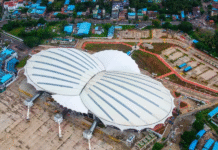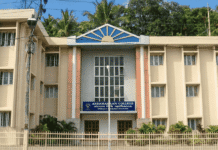The Andaman and Nicobar Administration will observe World Breastfeeding Week from August 1 to 7, 2025, with a renewed push for early and exclusive breastfeeding practices. Themed ‘Invest in Breastfeeding, Invest in the Future,’ the initiative calls for enhanced policy focus, healthcare infrastructure, and community engagement to support mothers during the crucial phase of infant care.
The Health Department is set to carry out an extensive campaign across all delivery points in the islands, both at community and institutional levels. Emphasis will be placed on initiating breastfeeding within the first hour of birth and promoting exclusive breastfeeding for the first six months of an infant’s life. Continued breastfeeding up to two years or beyond will also be encouraged, aligning with global health standards.
Health care providers across the territory will engage with mothers and families during routine visits and institutional deliveries to raise awareness on the benefits of breastfeeding. These include building immunity, reducing risk of malnutrition, and ensuring healthy cognitive development in infants. Experts consider early breastfeeding one of the most cost-effective health interventions for newborn survival.
The campaign underscores the need for supportive environments, where mothers feel empowered to breastfeed without stigma or discomfort. The administration aims to make all health institutions responsive to breastfeeding needs by improving contact opportunities and training health personnel in lactation support. This includes both public and private health institutions.
Promotional activities during the week will be intensified through outreach programmes, capacity-building sessions for frontline workers, and community-level interventions. The week-long observance will also aim to reinforce institutional accountability by encouraging the monitoring of breastfeeding practices and identifying gaps in care delivery.
Given the unique geographic challenges in the islands, including remote populations and limited connectivity, the campaign’s success will rely heavily on the involvement of ASHA workers, Anganwadi centres, and other ground-level healthcare functionaries. Leveraging these grassroots systems will be crucial in delivering consistent messaging on breastfeeding practices across all inhabited islands.
The initiative also seeks to involve male partners and families to foster a circle of support around mothers, allowing them the physical and emotional space to practice exclusive breastfeeding. Previous studies have highlighted the role of household support in sustaining breastfeeding practices, especially among working women.
By aligning the week’s activities with the broader maternal and child health goals under the National Health Mission, the administration aims to ensure that breastfeeding is promoted not only as a maternal duty but as a collective public health priority.
As part of the campaign, IEC (Information, Education and Communication) materials will be distributed, and sessions will be conducted to bust myths and misinformation about breastfeeding, which often hinder optimal infant nutrition. Health institutions will use the contact opportunity of immunization drives and antenatal check-ups to reach expectant and new mothers.
While World Breastfeeding Week is a global observance, its localized implementation in the Andaman & Nicobar Islands aims to bridge the information gap, especially in tribal and rural regions. With the week’s emphasis on systemic and social change, the Administration hopes to increase breastfeeding rates across all income groups and districts.





